Hi there GMT...
first of all this is based on a 'superficial' research I made it may not be exactly (ups!) as I said but i think it helps to get the picture
now about the polyploid... well, normal plants (diploids) have two set of chromosomes per cell, so any plant containing more than two set per cell is know as a polyploid.
from my research i found that there can be as 3, 4 and 5 sets per cell on polyploids. These plants are know respectively as triploids, tetraploids, and pentaploids. My plants are tetraploids.
Although sometimes polyploidy is mistaken with whorled phylotaxy
which is a trilateral branching mutation common on south americam sativa strains (3 branch per node) but the stem does not slipt or top itself!
anyway, there is not much information available at least that i've found or deeply understand ...
other folks say and i quote... "Unless you actually test the DNA of a plant there is no way to tell if it is polyploid. "
honestly... i agree... but keep in mind that this kinda of expression it's not a common thing... that's for sure!
in my specific case i don't believe that the seeds were created with poisons like colchine
the strain was NYC Diesel form Soma, (and i bought them in Amsterdam, myself) ...he goes all way organic... i don't imagine him using that shit, at least i hope that's the case
about the smoke... it was obviously a different pheno comparing to the other NYCD i was growing, the plant it self showned Indica traits in many aspects (high included)
but this pheno had a hudge downside, at least for me, of all the 4 nycd i ended up with, this was the one with the worst flavour/taste.
For me taste/flavour is the most important thing in cannabis, the high comes right after
also in this grow i had a second 'polyploid' plant which for me was the keeper
so my quick/basic conclusion is 2 phenos with 'polyploid' expression: one was bad the other was a keeper
some picts:
Soma's New York City Diesel
week 5
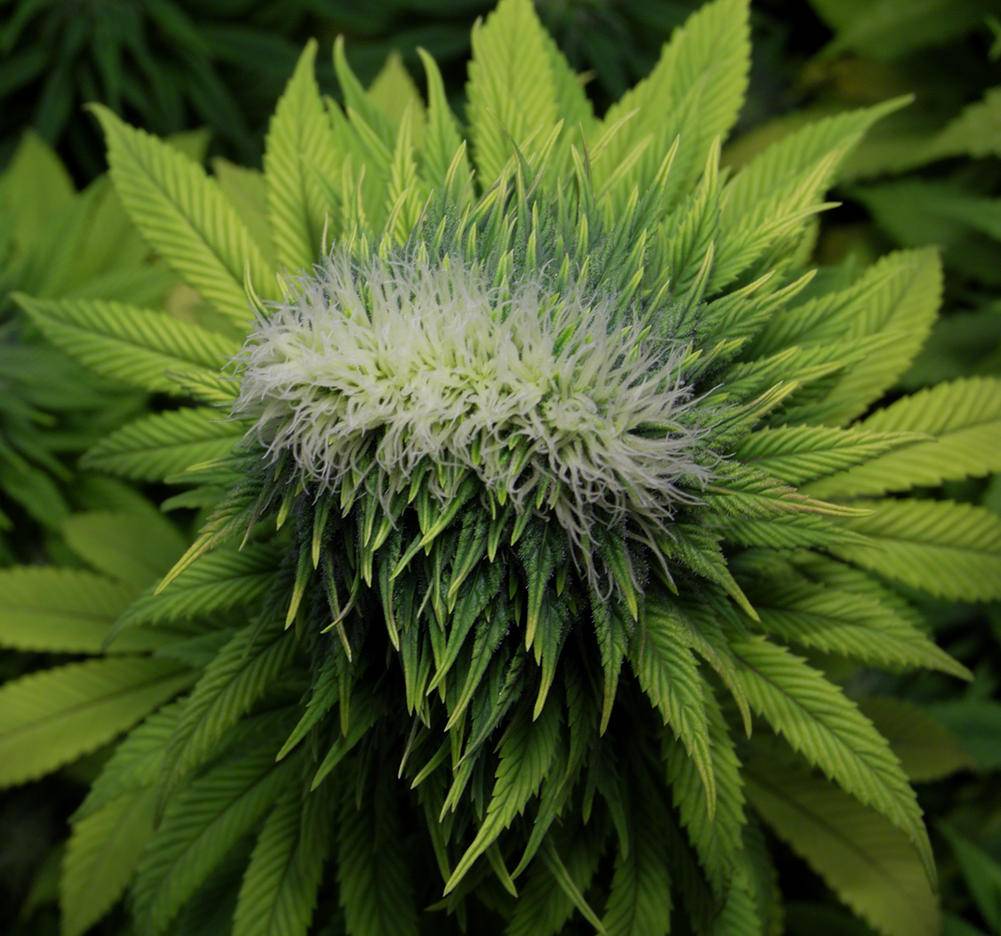
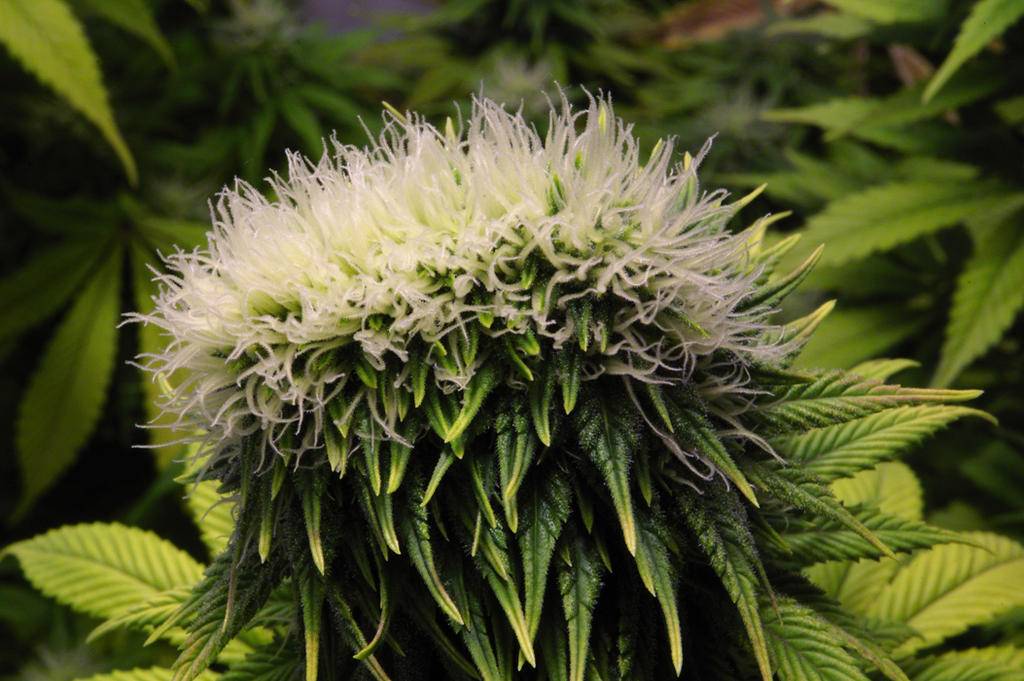
week 8
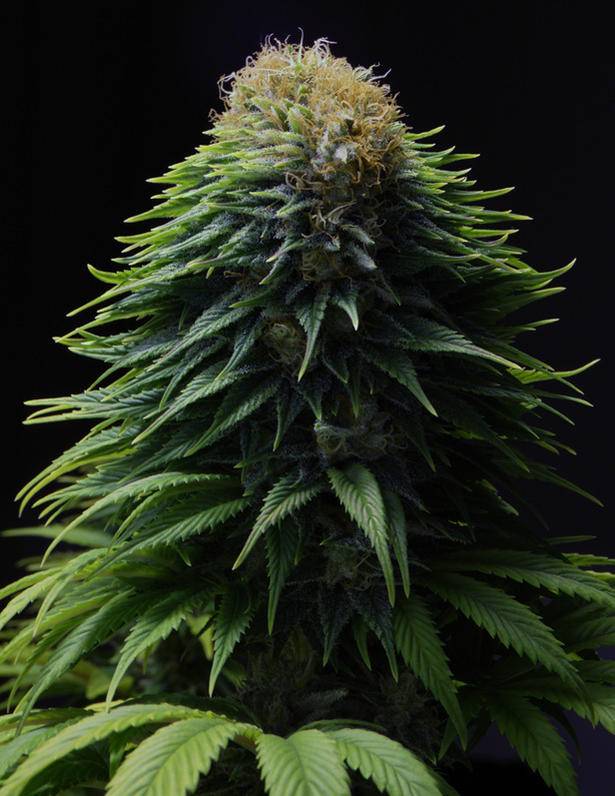
week 10
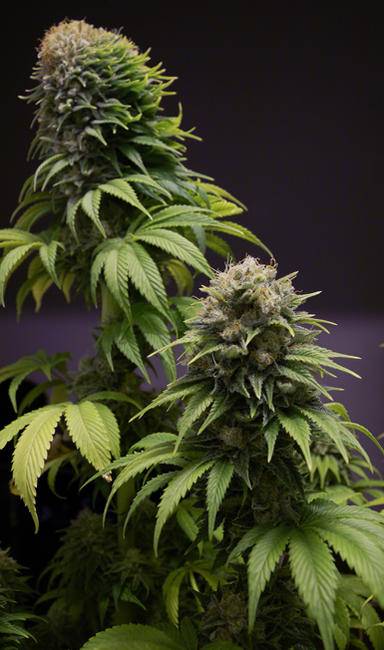
week 11
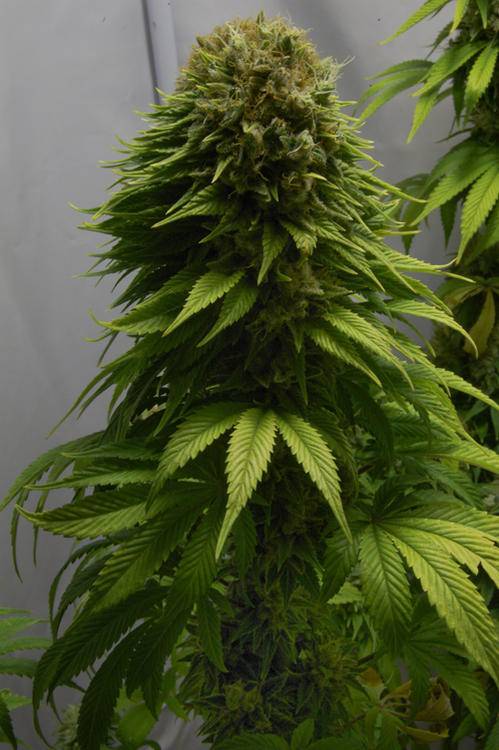
week 12
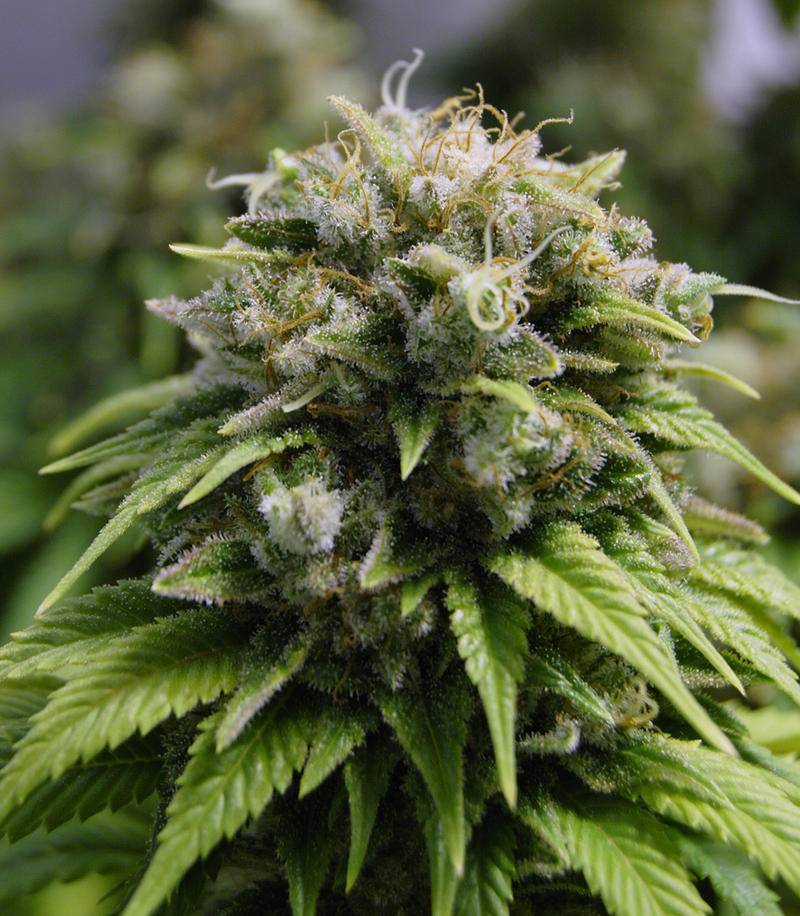
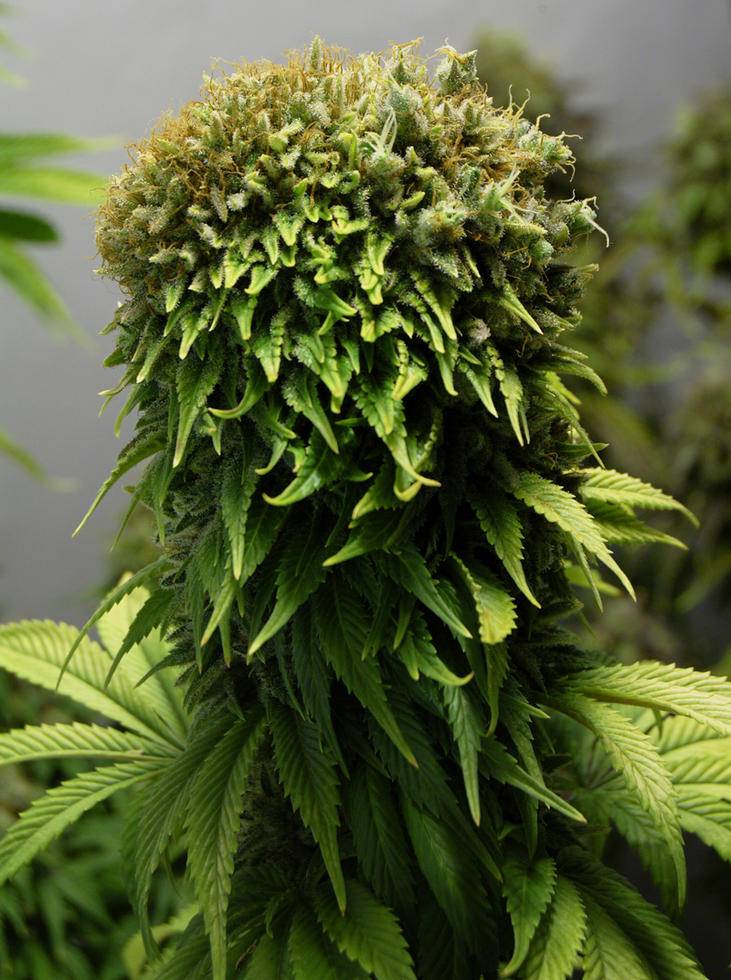
at harvest (14 weeks)
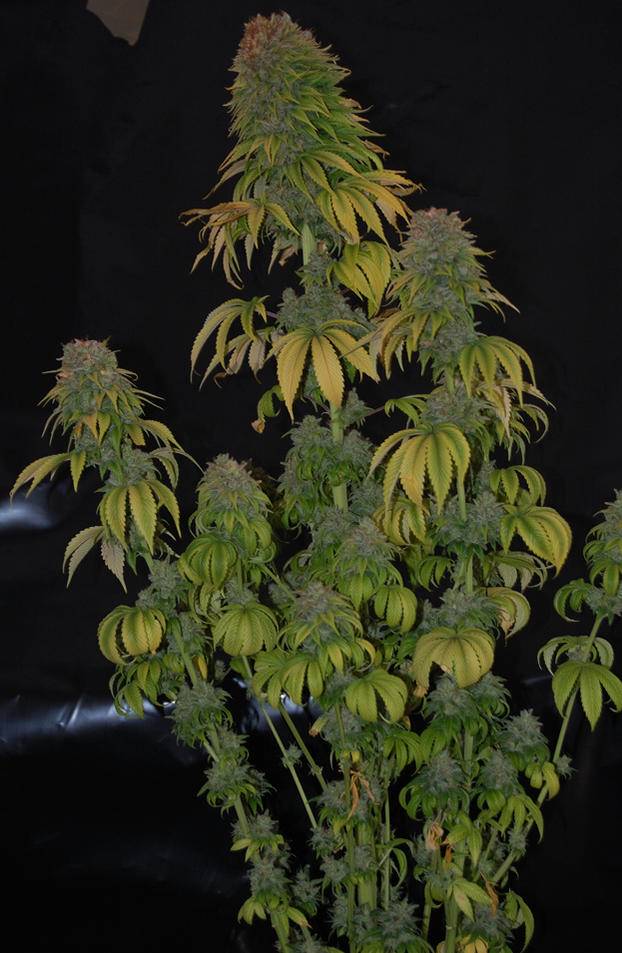
the 'keeper' pheno
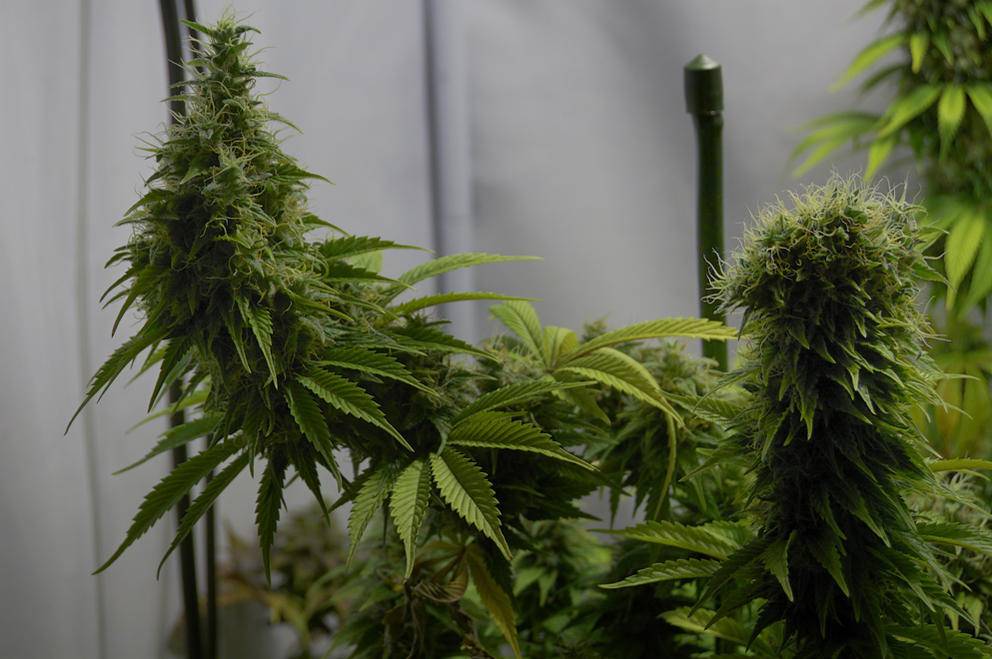
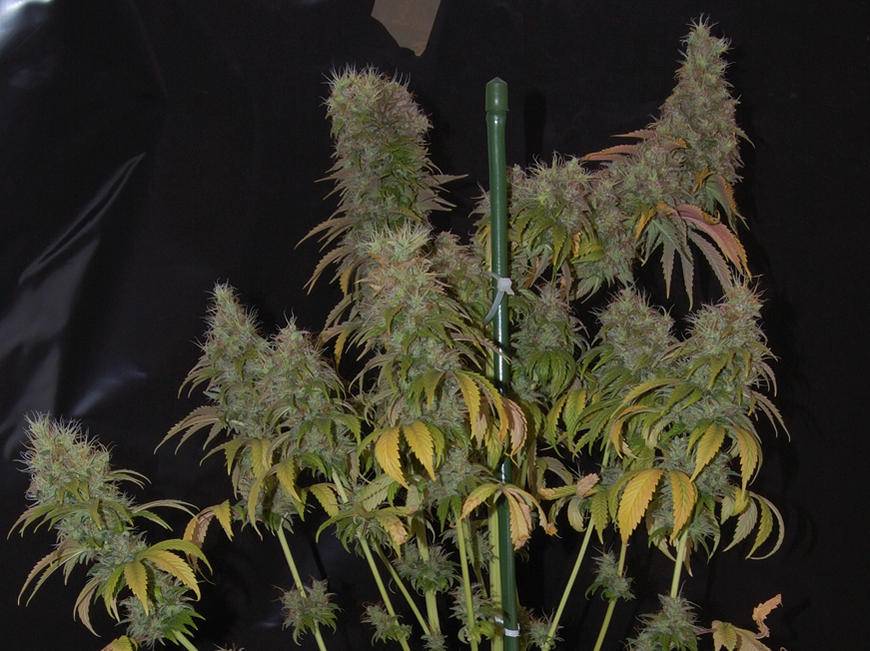
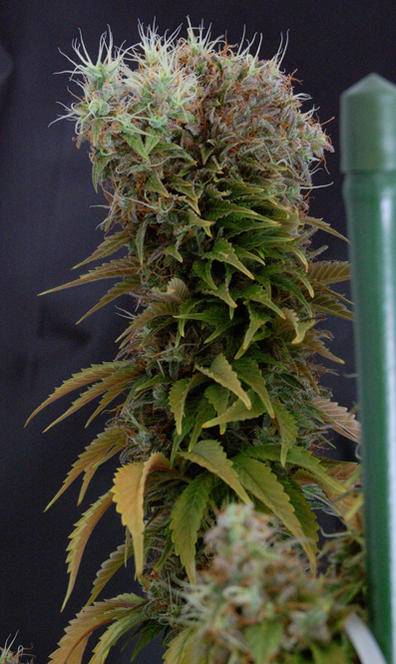
sorry if i went too long
cheers
first of all this is based on a 'superficial' research I made it may not be exactly (ups!) as I said but i think it helps to get the picture
now about the polyploid... well, normal plants (diploids) have two set of chromosomes per cell, so any plant containing more than two set per cell is know as a polyploid.
from my research i found that there can be as 3, 4 and 5 sets per cell on polyploids. These plants are know respectively as triploids, tetraploids, and pentaploids. My plants are tetraploids.
Although sometimes polyploidy is mistaken with whorled phylotaxy
which is a trilateral branching mutation common on south americam sativa strains (3 branch per node) but the stem does not slipt or top itself!
anyway, there is not much information available at least that i've found or deeply understand ...
other folks say and i quote... "Unless you actually test the DNA of a plant there is no way to tell if it is polyploid. "
honestly... i agree... but keep in mind that this kinda of expression it's not a common thing... that's for sure!
in my specific case i don't believe that the seeds were created with poisons like colchine
the strain was NYC Diesel form Soma, (and i bought them in Amsterdam, myself) ...he goes all way organic... i don't imagine him using that shit, at least i hope that's the case
about the smoke... it was obviously a different pheno comparing to the other NYCD i was growing, the plant it self showned Indica traits in many aspects (high included)
but this pheno had a hudge downside, at least for me, of all the 4 nycd i ended up with, this was the one with the worst flavour/taste.
For me taste/flavour is the most important thing in cannabis, the high comes right after
also in this grow i had a second 'polyploid' plant which for me was the keeper
so my quick/basic conclusion is 2 phenos with 'polyploid' expression: one was bad the other was a keeper
some picts:
Soma's New York City Diesel
week 5
week 8
week 10
week 11
week 12
at harvest (14 weeks)
the 'keeper' pheno
sorry if i went too long
cheers





